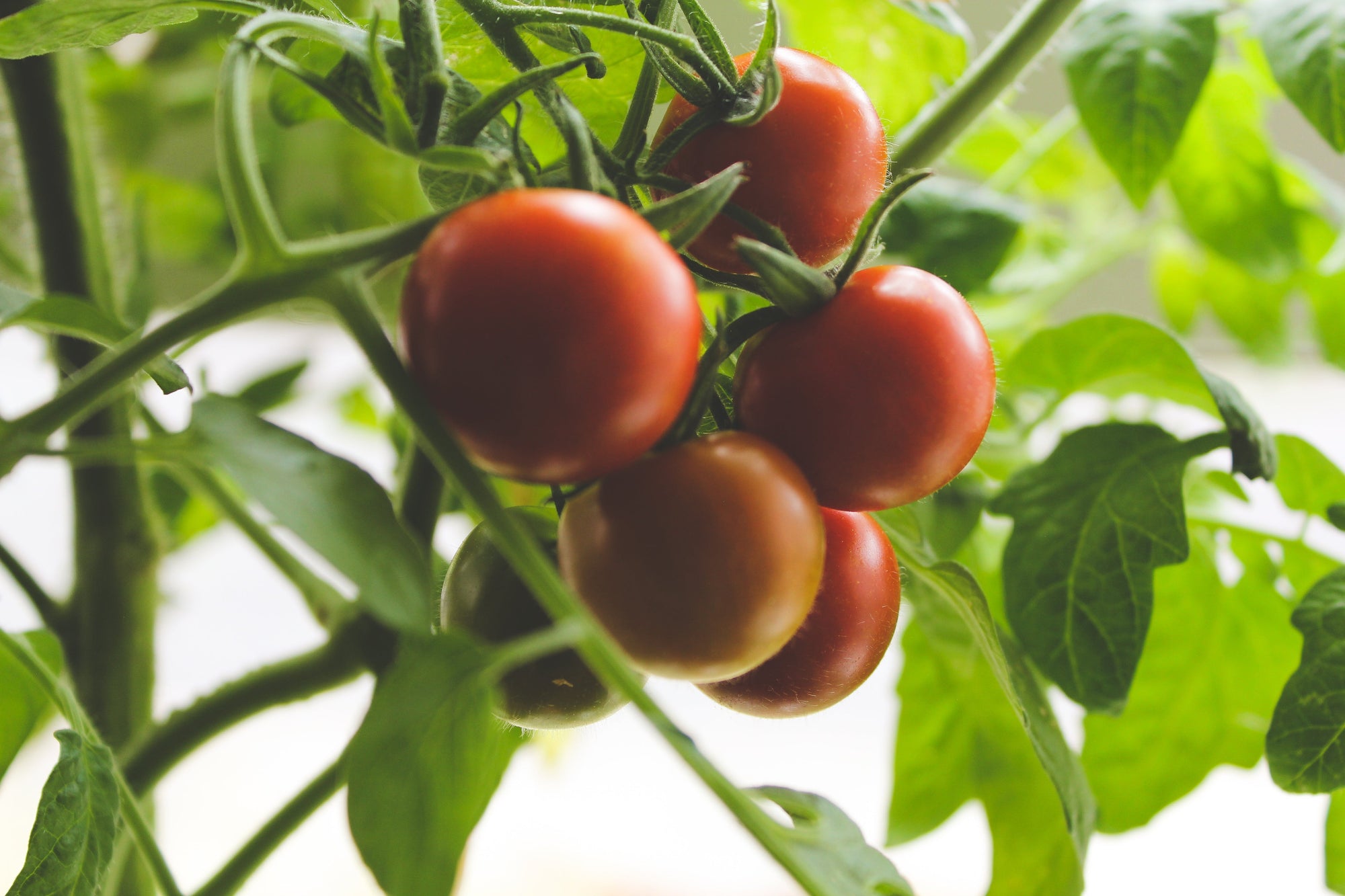Why High-Carb Crops Demand Plenty of Potassium (and How Manganese Can Help)
•Posted on May 23 2015

Why High-Carb Crops Demand Plenty of Potassium (and How Manganese Can Help)
Table of Contents
When it comes to growing fruit-bearing plants—particularly those that produce high-carbohydrate fruits like tomatoes and potatoes—potassium (K) is absolutely essential. This nutrient plays a key role in transporting carbohydrates into fruits, which function as storage organs for sugars. Because fruits serve as sugar "sinks," they also become potassium sinks, leading to an especially high demand for K in these crops.
Common Signs of Potassium Deficiency
Even with adequate soil potassium, your plants might show these warning signs if they're struggling to absorb enough:
- Yellow leaf edges
- Poor fruit development and uneven ripening
- Weak stems
- Reduced sweetness in fruits
- Lower overall yields
Why Some Crops Struggle with Potassium Uptake
Although potassium is often abundant in the soil, some crops still struggle to absorb it effectively. This issue can arise from several factors, including:
- Inadequate root systems (poor root health or limited root expansion)
- Low soil microbiology (reduced beneficial microbial activity)
- Poor water quality (excess salts or imbalanced pH in irrigation water)
- Challenging soil conditions (high pH, excessive calcium or phosphorus, or unfavorable geology)
When soil pH is too high or when calcium and phosphorus levels are excessive, potassium can become "locked up" and less available to plants. It's not uncommon to find that, despite generous soil levels of potassium, crops still show signs of deficiency if they can't absorb enough K to meet their needs.
 The Manganese Solution
The Manganese Solution
One powerful tool for enhancing potassium uptake is ensuring adequate manganese (Mn) in your soil. This connection isn't just field observation—it's backed by decades of scientific research. According to Marschner's Mineral Nutrition of Higher Plants, a foundational text in plant nutrition science, manganese plays a crucial role in enzyme activity and carbohydrate metabolism, which directly affects how plants absorb and use potassium.
Another study in the Journal of Agricultural Science (Chumbley & De Silva, 1973) demonstrated this relationship in tea plants, showing that inadequate manganese levels limited potassium uptake and affected crop yields. While this research focused on tea, the underlying biological mechanisms apply to many crops.
How Does Manganese Boost Potassium Uptake?
According to Marschner's comprehensive research, the relationship between manganese and potassium involves several sophisticated biological mechanisms:
-
Enzyme Activation: Manganese acts as a vital cofactor for over 35 different enzymes in plants, including those involved in:
- Carbohydrate metabolism and energy production
- The electron transport chain in photosynthesis
- Nitrate reduction and assimilation
-
Improved Root Health: Manganese plays a crucial role in:
- Root cell elongation and growth
- Protection against root pathogens
- Formation of the barrier in root cell walls
-
Photosynthesis and Sugar Transport: As highlighted in Plant Physiology and Development (Taiz et al., 2015), manganese is essential for:
- Water-splitting reactions in photosynthesis
- Production and movement of carbohydrates
 Crop-Specific Guidelines and Troubleshooting
Crop-Specific Guidelines and Troubleshooting
Additional Crop Examples:
-
Cucurbits:
- Melons, cucumbers, and squash need consistent manganese during vine development
- Critical timing: pre-flowering and early fruit set
- Watch for yellowing between veins on older leaves
- May need foliar applications during heavy fruiting (Chelated Manganese is recommended for quicker absorption.)
-
Brassicas:
- Broccoli, cauliflower, and cabbage are heavy feeders
- Most sensitive during head formation
- Can show purple tinting if deficient
- Often benefit from split applications
-
Leafy Greens:
- Spinach, chard, and lettuce show quick response to manganese
- Look for interveinal chlorosis on new growth
- More frequent, lighter applications preferred
- May need supplemental foliar sprays in alkaline soils
Organic Management Strategies:
-
Building Soil Biology:
- Maintain active soil microbial populations through:
- Regular compost applications
- Minimal soil disturbance
- Cover cropping with diverse species
- Avoiding excess phosphorus buildup
-
Natural Manganese Sources:
- Approved materials include:
- Manganese sulfate (naturally mined)
- Kelp and seaweed products
- Rock dusts high in trace minerals
- Composted plant materials
Expanded Troubleshooting Guide:
Common Issues and Solutions:
-
Yellowing Between Leaf Veins:
- Cause: Classic manganese deficiency
-
Solutions:
- Immediate foliar spray for quick correction
- Soil application for long-term fix
- Check pH and adjust if necessary
- Improve soil drainage if poor
-
Poor Fruit Development:
- Cause: Inadequate potassium uptake
-
Solutions:
- Verify manganese levels
- Check for soil compaction
- Ensure adequate irrigation
- Consider foliar potassium if Mn adequate
Managing Soil pH
A key benefit of manganese sulfate is its ability to help lower soil pH in alkaline soils. This dual action:
- Provides essential manganese for improved nutrient uptake
- Gradually reduces soil pH through the sulfate component
- Creates better conditions for overall nutrient availability
For more severe pH issues, check out our detailed guide: How to Lower Soil pH Using Sulfur.
By focusing on both potassium and manganese levels while maintaining proper soil pH, you can give your high-carbohydrate crops the boost they need for healthier, more productive harvests. Happy growing!
Comments
0 Comments
Leave a Comment